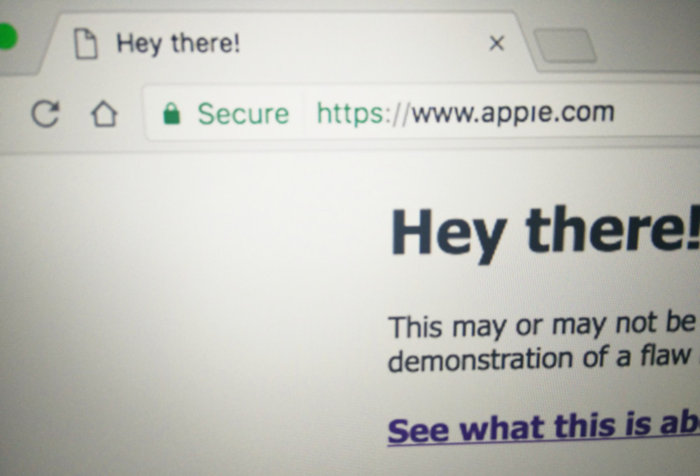While most people are aware of the malicious threats targeting their computers, many still don’t realise that their mobile devices are an increasingly lucrative a target for cybercriminals. The main way smartphones are attacked is though apps, often ones which pose as innocent and useful but actually aim to steal data or in the case of ransomware, force users to pay up. Recently, google uncovered the Android version of Pegasus, a mobile spyware created by NSO Group, an Israeli surveillance company considered the most advanced producer of mobile spyware on…
Read MoreTag: cyber security
Google Docs phishing attack is fixed
Google Docs users were hit by a widespread phishing attempt everywhere being spammed with what appeared to be malicious invitations to log on to their Google accounts. Unlike your garden-variety cyberattack, many of the telltale signs that could tip off that something was awry are absent. What made this attack so tricky to detect was that it took advantage of Google’s legitimate tool for sharing data with responsible third-party apps. Since the bogus invitation was being routed through Google’s real system, nothing was misspelled, the icons looked accurate, and it’s hard to know something’s…
Read MorePhishing attacks using internationalized domains are hard to block
Attackers can evade a security mechanism and abuse Unicode domains to phish for the login credentials of Chrome, Firefox, and Opera users. Security researcher Xudong Zheng has developed a proof-of-concept that exploits an issue in some web browsers. Attackers can abuse this sleight of hand to redirect users to phishing websites. All they need to do is use Punycode, which relies on ASCII characters to convey foreign characters. The Punycode domain “xn--pple-43d.com” is equivalent to “apple.com”, for example. As long as a web browser translates the Punycode into what’s known…
Read MoreBankBot trojan hits Google Play
A trojan virus that affects Android devices leaked online in January. This was the BankBot, a banking malware which disguised itself as a harmless program and able to avoid Google’s security scans. Weeks after the attack, the malware found its way to Google Play Store. What makes this vicious banking Trojan threatening is that it was able to find a way of hiding in apps using a variety of names on Play Store. On is Funny Videos 2017 and the other is the HappyTimes Videos, with the latter discovered just…
Read MoreArtificial intelligence could be the key to cyber security
In a constantly evolving digital threat landscape, where firewalls and antiviruses are considered tools of antiquity, companies are looking to more technologically advanced means of protecting crucial data. Experts point out the cyber-threat landscape has drastically changed and that criminals are now using more artificial intelligence technologies to launch sophisticated attacks. Even a few years ago, launching a distributed denial of service attack to take down a website, defacing webpages and stealing credit card details were considered major instances of cyber-attacks. Today, anything from medical records to airline miles data…
Read MoreIOT and cybersecurity: tomorrow’s threats today
A growing number of devices and appliances are now getting connected to a network, and to each other, to provide additional, enhanced features. We are beginning to see some of this potential being realised and the number of connected devices is growing fast. Cisco predicts that 50 billion new devices will be connected to the internet by 2020. Additionally, IoT connected cars are able to monitor and adapt to both internal performance quality and external environment, allowing modern cars to provide a new level of safety that was before unattainable.…
Read MoreIT Security remains a Top Concern for Tech Startups
The increase in the amount of data breaches and cyber attacks have resulted in a rise in the number of conversations surrounding IT security for small businesses. While the resulting conversation is an important one, all too often small businesses simply don’t have the time to research and understand the onslaught of technological solutions that are available to them. This widespread lack of education is growing as cybersecurity solutions continue to be developed and released at unprecedented levels. With these challenges in mind, the increase in IT security conversations has…
Read MoreCyber crime is fastest growing economic crime
Cyber crime is perceived as the fastest growing fraud risk (40%), followed by bribery and corruption (36%)around the globe. The UK has seen a double-digit rise in economic crime against corporates in the past two years, with 55% of organisations affected up 11% since 2014 and well above the US (38%) and China (28%). Globally, the economic crime rate has remained largely static at 36%, according to the survey of more than 6,000 respondents in 115 countries. The survey found that 60 % of economic crime in the UK was…
Read MoreSecurity of IoT Devices to Be Rated for First Time
IoT standards groups are emerging to address issues of inter operability, communication protocols and security. Consumer Reports will begin considering the cybersecurity and privacy safeguards of products when rating them – a long overdue move perhaps, given Internet of Things device manufacturers have previously been accused of doing the barest minimum to protect consumers. The firm will steadily implement the methodologies across its reviews, starting with test projects evaluating a small number of products. The move follows a surge in cyberattacks which have exploited vulnerabilities in Internet of Things devices such as webcams, routers, digital video…
Read MoreSecurity Concerns Rising in the Age of IoT
IoT has gone mainstream. Home refrigerators are chattier than ever, and emerging virtual home assistants can order wings for dinner, turn on lawn sprinklers, start the car and purchase pounds of cookies. Yet behind the headlines of these gee-whiz cyber technologies lurks a shortcoming. It is one that poses significant threats to national security but could be remedied fairly easily, some experts offer. The mobile device and sensor industries lack uniform security standards and a system of checks and balances—something akin to the safety standards for electrical devices and components…
Read More









